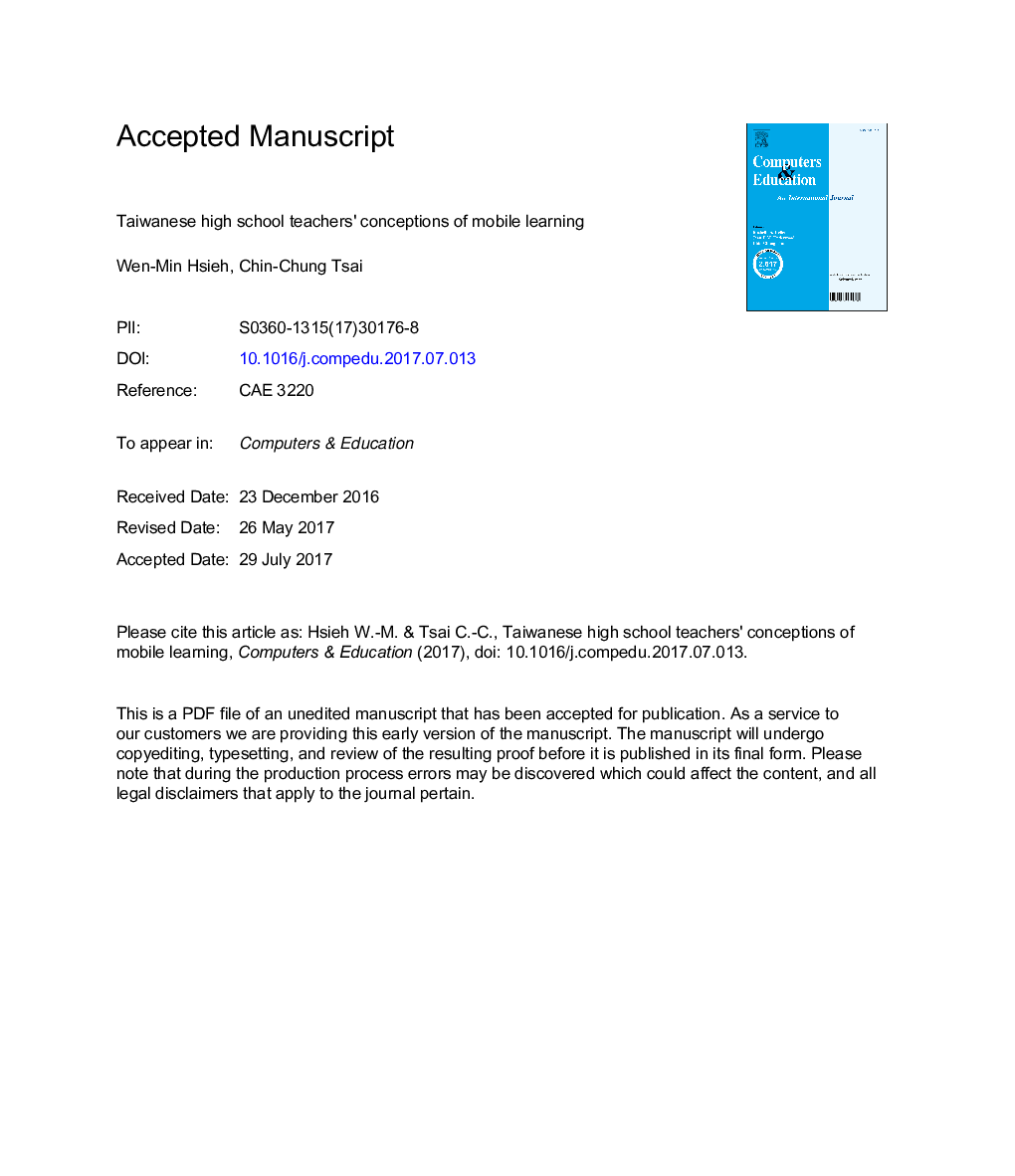| Article ID | Journal | Published Year | Pages | File Type |
|---|---|---|---|---|
| 4936792 | Computers & Education | 2017 | 42 Pages |
Abstract
This qualitative study describes the results of a phenomenographic analysis of teachers' conceptions of mobile learning. Fifteen senior high school (Grades 10-12) teachers from five schools in northern Taiwan involved in a national mobile learning program participated in this study. Data were collected through semi-structured interviews. Through data analysis, six qualitatively different conceptions of mobile learning were obtained: 1) meeting students' preferences, 2) conducting classes with efficiency, 3) invigorating and enhancing learning, 4) parting from traditional teaching, 5) focusing on student ownership, and 6) extending learning beyond school. The conception categories form a hierarchy and show a trajectory moving from teacher-/content-oriented to learner-/learning-oriented conceptions. In addition, technology was almost invisible in the more sophisticated conceptions. Finally, juxtaposing the conception categories with the replacement, amplification, and transformation framework revealed that teachers' central ideas regarding mobile learning fell within the amplification category, suggesting the use of technology mainly to increase efficiency and productivity. It is concluded that for mobile devices to exert transformative power on learning, it might be necessary to cultivate the more sophisticated conceptions of mobile learning among teachers.
Related Topics
Social Sciences and Humanities
Social Sciences
Education
Authors
Wen-Min Hsieh, Chin-Chung Tsai,
